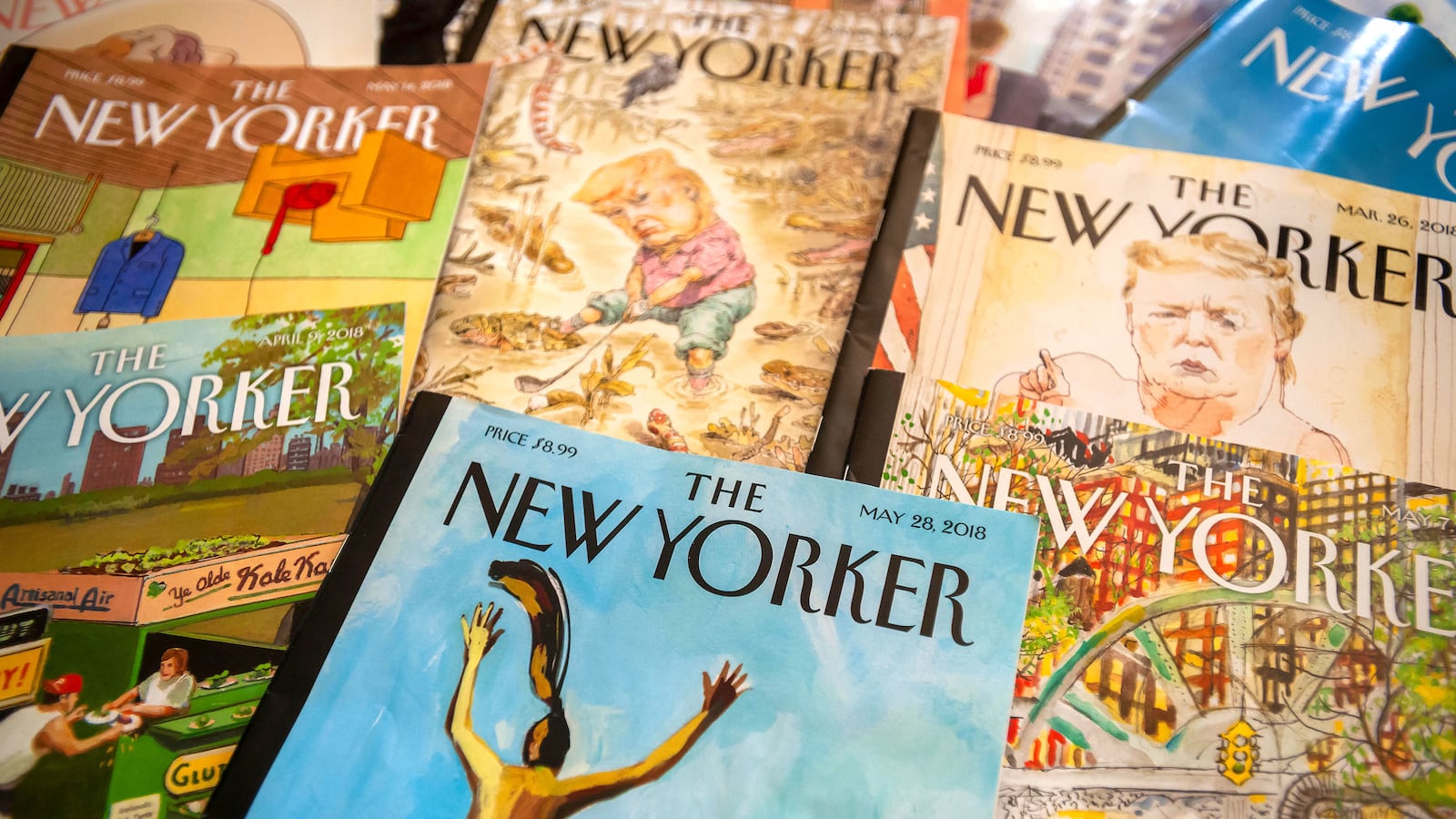Condé Nast will eliminate the use of non-disclosure agreements related to harassment and discrimination, and plans to release some employees from existing harassment or discrimination-linked arrangements.
In a Friday morning note to staff shared with The Daily Beast, Condé Nast management said the iconic publisher, which includes more than a dozen titles like The New Yorker, GQ, and Vogue, among others, will end such NDAs, and will cease previously existing agreements “on a case-by-case basis.”
The memo said that reporting by Condé publications on the widespread abuses of the deals—often used by media companies to silence accusers of workplace misconduct—had “prompted us to reconsider the role of NDAs at our own company.”
“We are proud that when complaints of harassment or discrimination are made, we take them seriously and investigate them thoroughly,” the memo said. “We strive to protect employees who have raised complaints and treat all employees fairly based on a thorough understanding of the facts. We believe this update to our NDA policy strikes the right balance, considering our core value of transparency, and the interests of our employees, company, and brands.”
The move comes amid shifting public views about the use of NDAs, as well as internal pressure to change the company’s policy on their use.
Over the past several months, The New Yorker’s editorial union has been in collective bargaining with the company’s leadership for a new contract. One of the union’s primary concerns has been the addition of contract language banning the use of NDAs in instances of harassment and discrimination, and releasing any current and former staff from past arrangements. Condé Nast has contended that the company was committed to eliminating NDAs before The New Yorker union’s proposal, though union staffers were irked that magazine leadership was virtually silent about the proposal before Friday’s announcement.
“I’m pleasantly surprised to hear that management has embraced our concept, including the extension of this policy to everyone at the company,” New Yorker union unit chair Natalie Meade said. “Our union members look forward to ratifying our first CBA, which would enshrine this new industry standard.”
After exposing accused serial rapist Harvey Weinstein, The New Yorker famously helped kickstart a national movement against the use of non-disclosure agreements in muzzling victims of harassment or discrimination.
While NDAs are increasingly prevalent in many businesses, their use in a public-facing industry like media has become the subject of contentious debate and a major issue for some industry unions. The New Yorker staff guild is represented by the Newsguild, which also represents The Daily Beast’s editorial staff. The NDA proposal in question, which was floated by the Newsguild’s legal team, is also currently being negotiated at a number of other shops, including The Daily Beast.
The issue had become particularly pronounced at The New Yorker, especially because the magazine has produced some of the most high-profile, aggressive coverage of sexual harassment in the workplace, and the way that NDAs have been used to silence victims.
Most famously, Ronan Farrow won a Pulitzer for his New Yorker exposé of the many allegations of sexual harassment and assault against disgraced Hollywood mogul Harvey Weinstein, who used non-disclosure agreements and other intimidation tactics to effectively muzzle his accusers for many years.
Farrow also dedicated a significant chunk of his 2019 book Catch & Kill to investigating how NDAs at various news organizations and media companies prevented victims from speaking out against workplace misconduct—and may have enabled further abuse.
Such a connection between Farrow’s famed reporting and the current debate at the storied magazine hasn’t gone unnoticed by rank and file. During one bargaining session, The New Yorker guild brought a copy of Farrow’s book and referenced it as a reminder of the publication’s work covering NDAs.
Some news organizations including Vice, Mic, and HuffPost have required their employees to sign non-disclosure agreements in exchange for severance pay when they’ve been laid off. Others, like Business Insider, floated NDAs barring their employees from ever criticizing the company.
Last fall, amid outrage over the network’s use of non-disclosure agreements related to disgraced Today show anchor Matt Lauer’s alleged sexual misconduct, NBC agreed to release some former employees from their confidentiality agreements. Fox News, meanwhile, which infamously used NDAs to silence at least five separate harassment accusers against ex-host Bill O’Reilly, has yet to agree to nullify such arrangements, despite pressure from high-profile former hosts like Gretchen Carlson, whose harassment allegations led to the end of network chief Roger Ailes’ career.
On Wednesday, Sen. Elizabeth Warren (D-MA) ripped former rival Democratic presidential candidate Michael Bloomberg for refusing to release some women who signed NDAs at his financial media company.
“What we need to know is exactly what's lurking out there,” she said while standing next to the former mayor on the debate stage. “[Bloomberg] has gotten some number of women—dozens, who knows—to sign nondisclosure agreements for sexual harassment and gender discrimination in the workplace.”
The senator concluded: “So Mr. Mayor, are you willing to release all of those women from those nondisclosure agreements? So we can hear their side of the story?”





